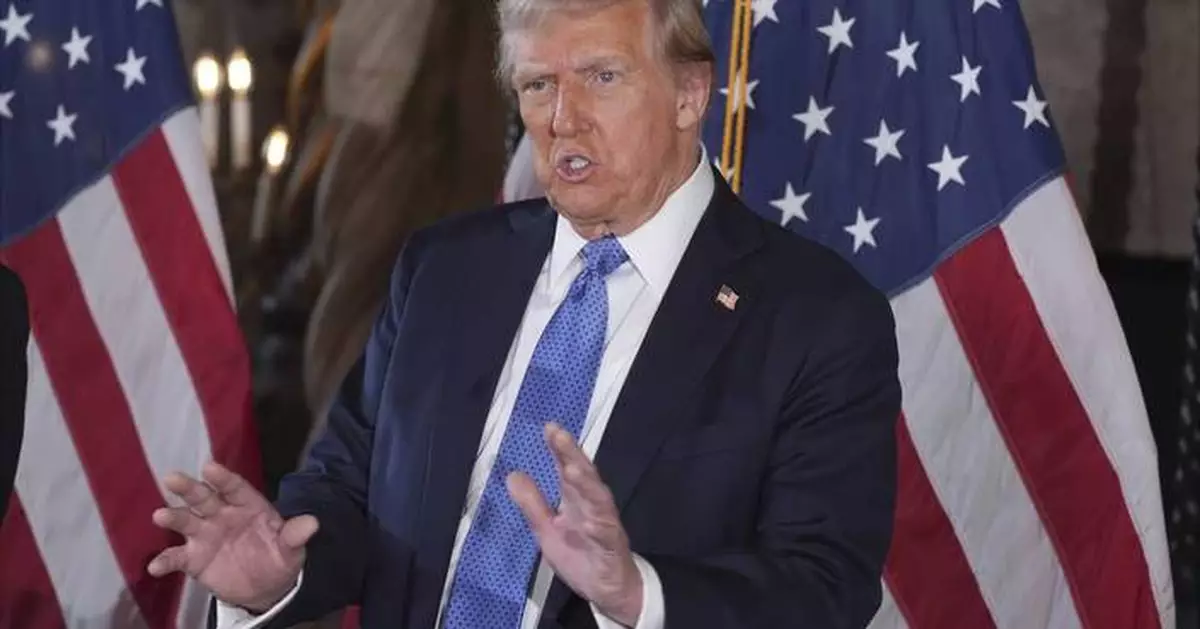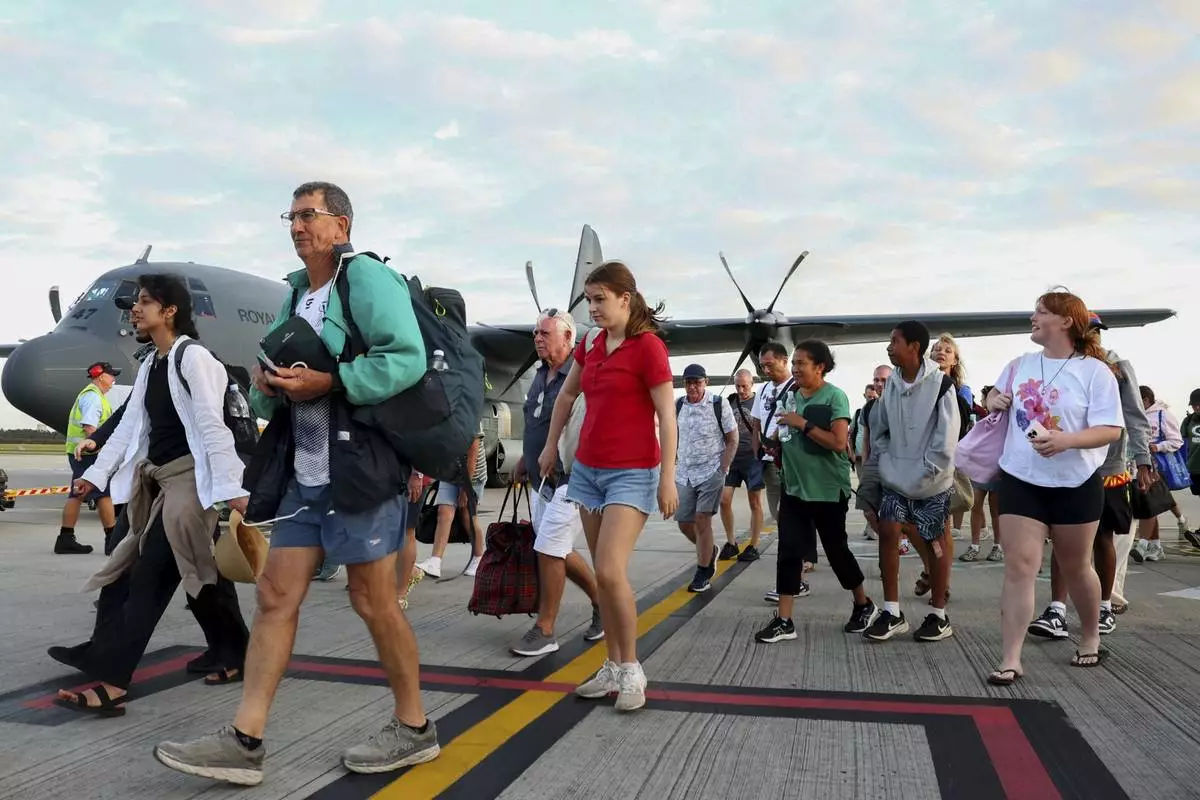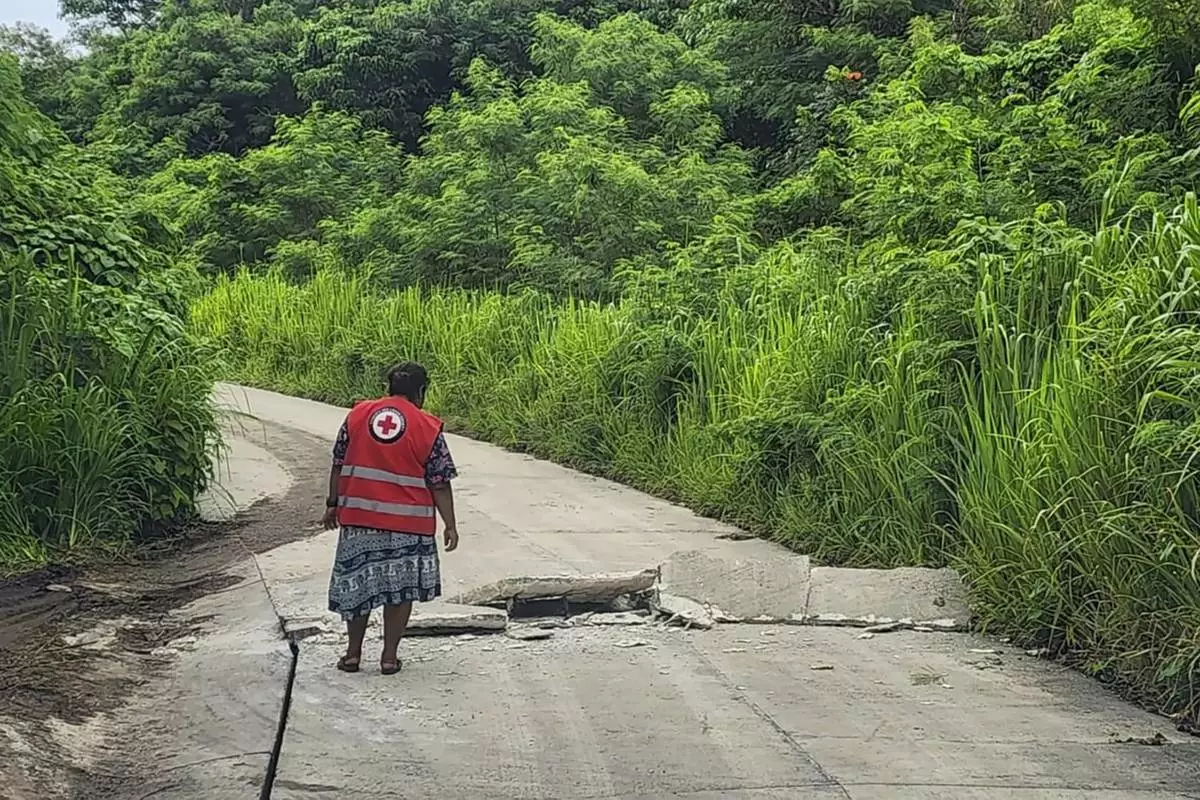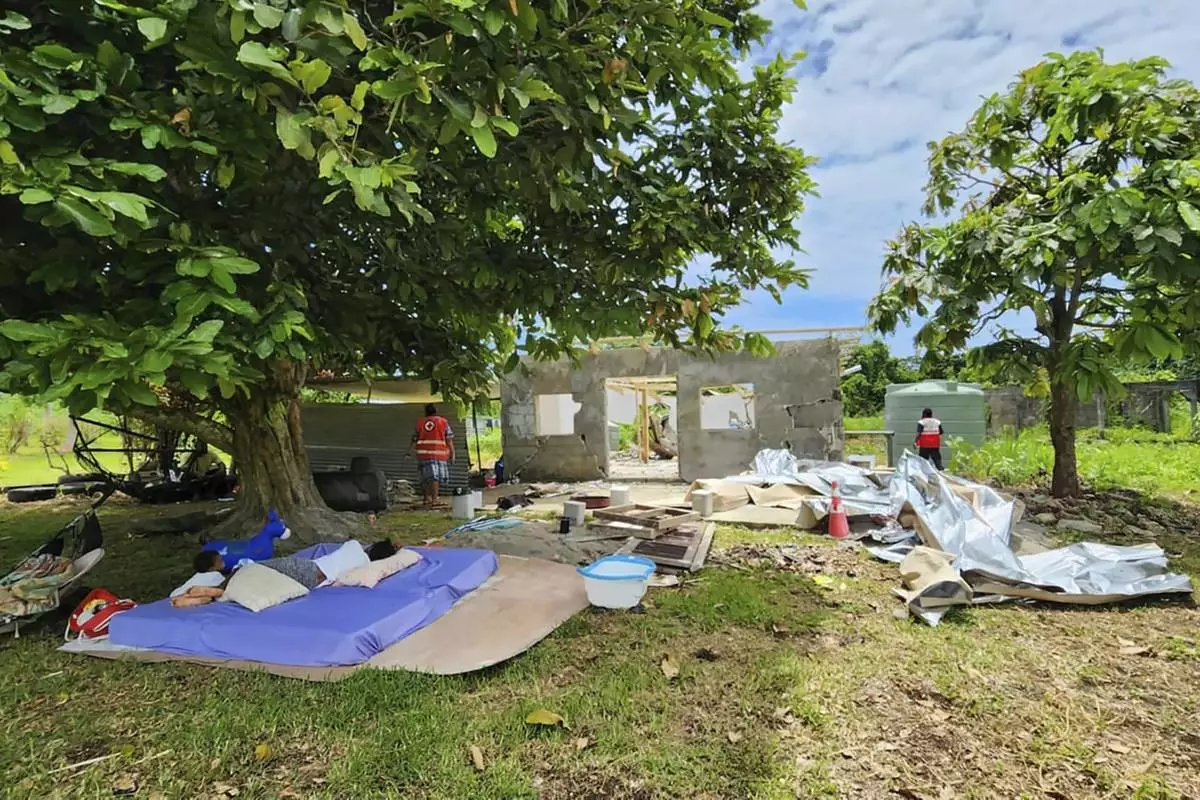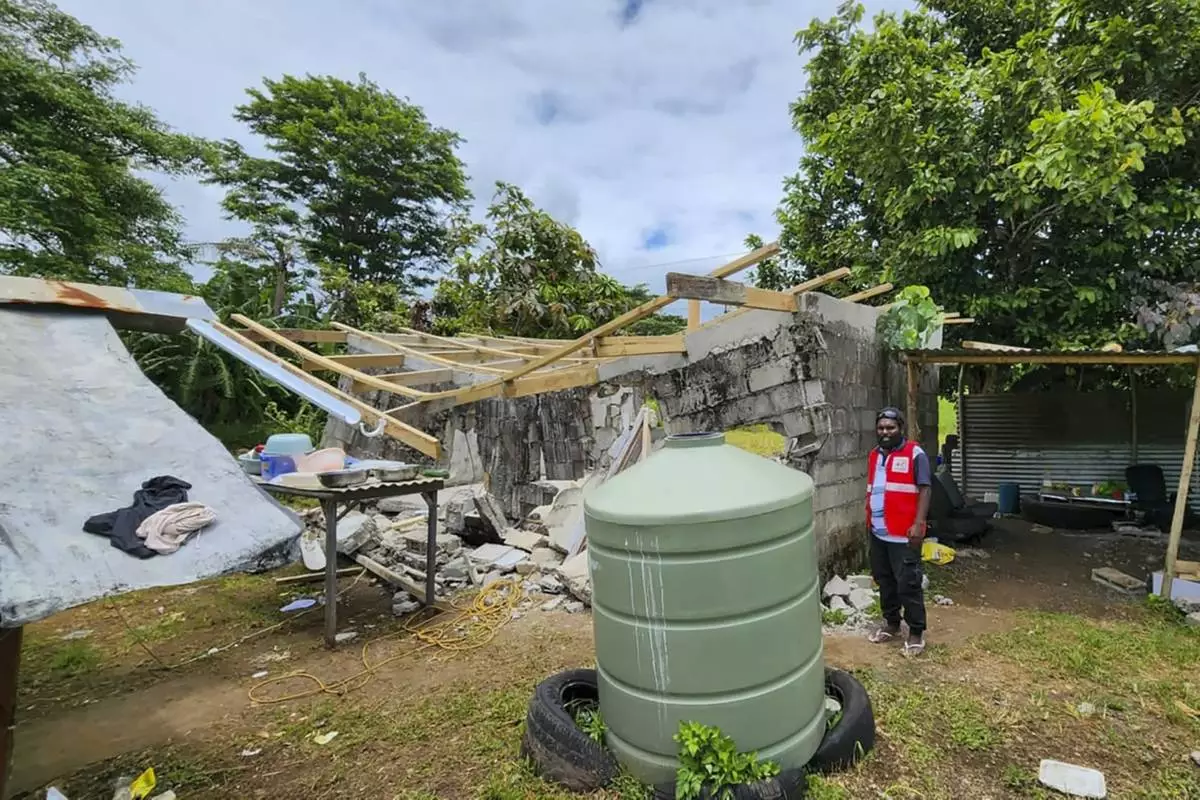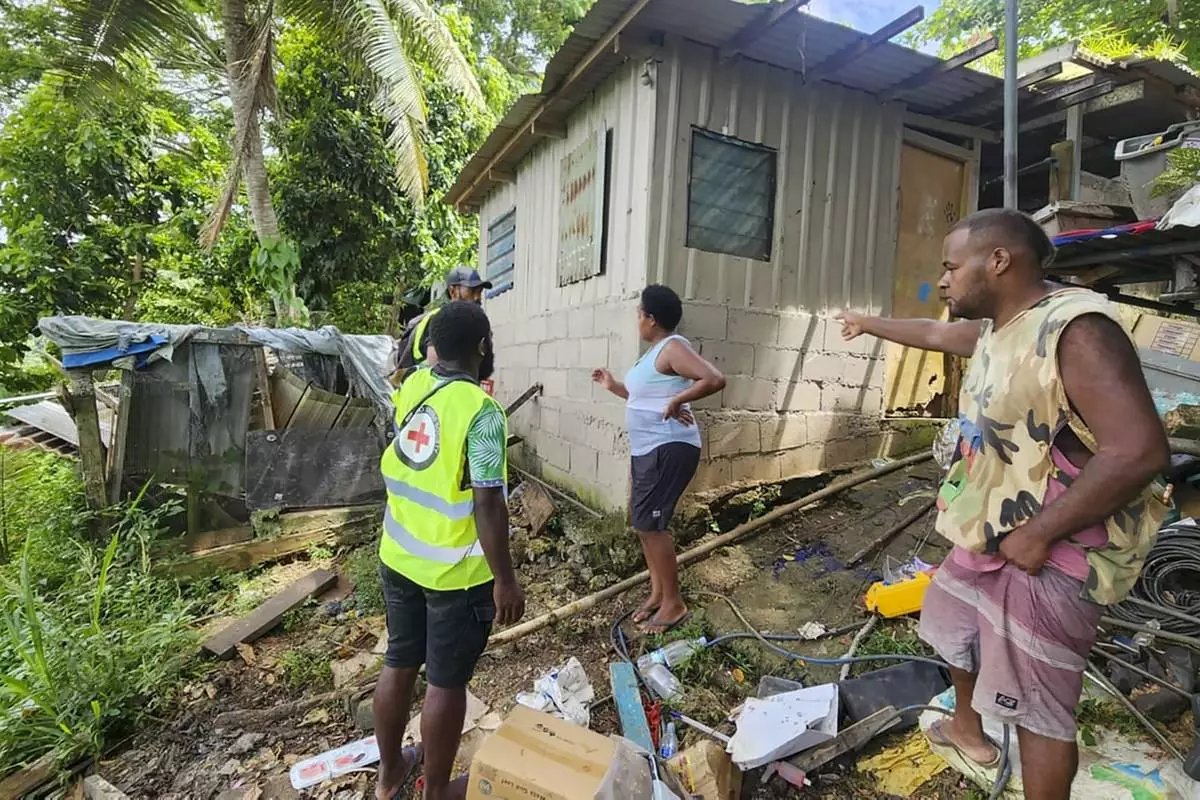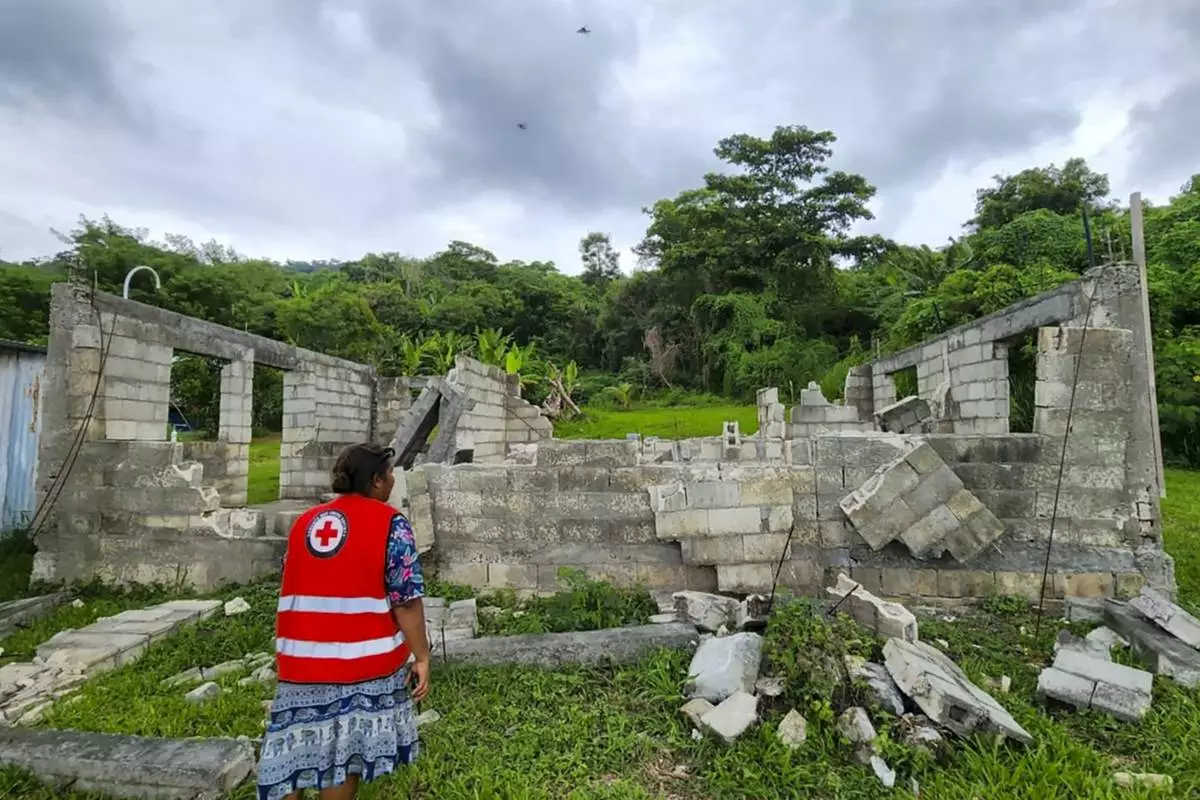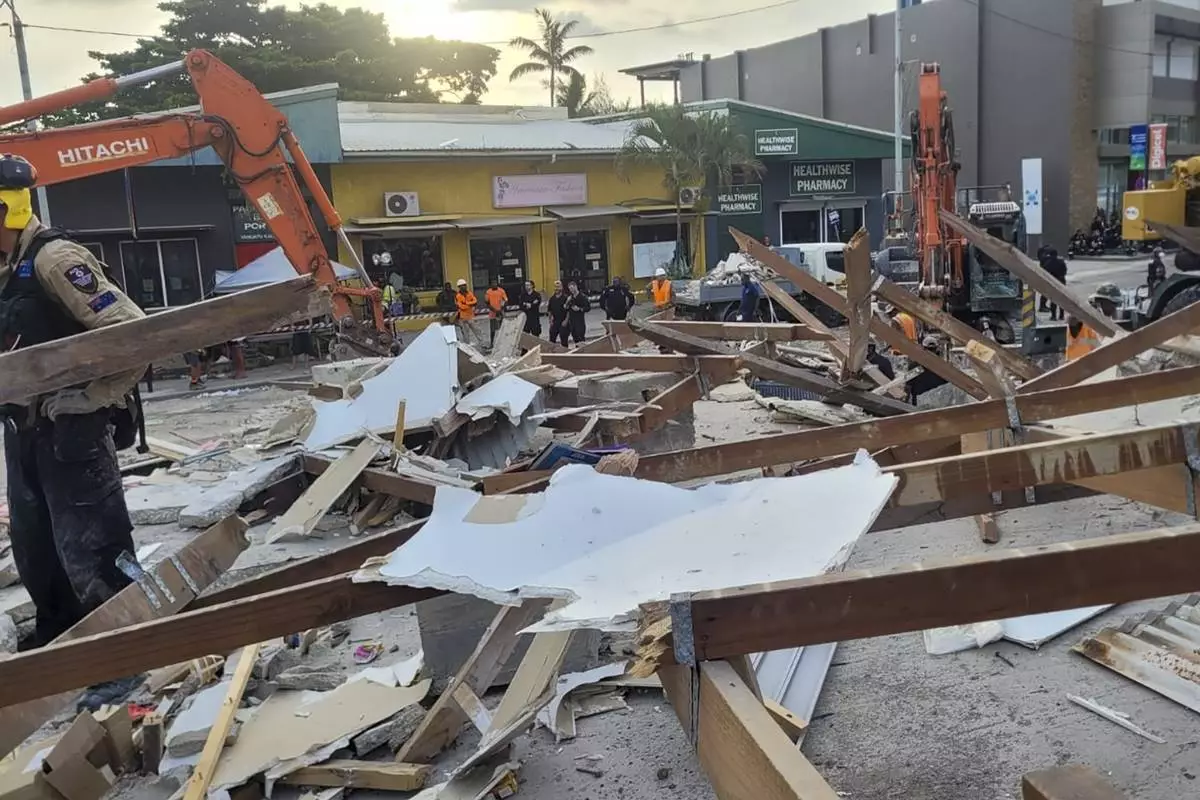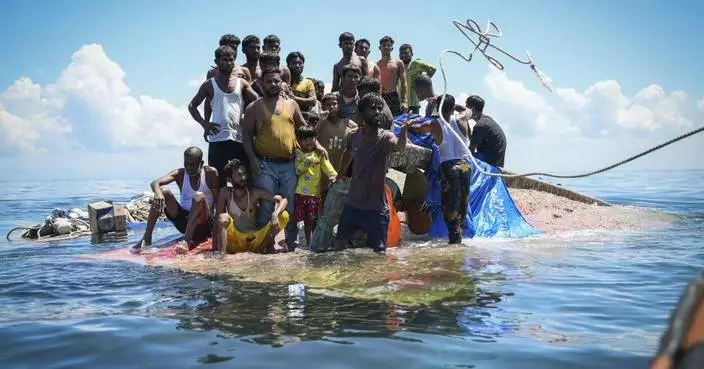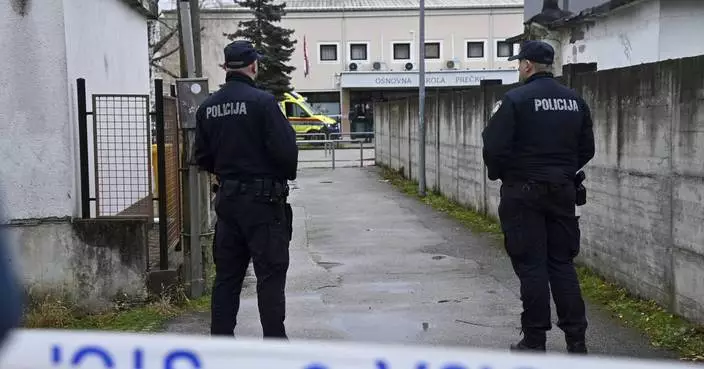WEST PALM BEACH, Fla. (AP) — The smooth economy that Donald Trump was poised to inherit suddenly looks a bit rockier — with critics saying the president-elect is contributing to the uncertainty.
The Dow Jones stock index essentially ended Thursday flat after having posted 10 days of losses. The Federal Reserve now sees inflation as staying stubbornly elevated as it has become cautious about further interest rate cuts planned for next year.
On Wednesday, Trump blew up a bipartisan budget deal, which means the government could shut down after midnight Saturday. He then promoted a deal reached with Republicans on Thursday that Democratic lawmakers and President Joe Biden see as unacceptable. It failed to get the two-thirds threshold needed for House passage. This comes on top of a spate of tariff threats by Trump that the Congressional Budget Office said Wednesday would raise prices and hurt growth without raising enough revenues to cover the rest of his planned tax cuts.
As Trump prepares for a second term in the White House, his actions to undo a deal and replace it in under 24 hours test the proposition that markets — a favored Trump barometer of success — will accept his mix of uncertainty and reality TV drama.
But from the vantage of Trump world, the economy was already a mess. That's because of inflation, which is currently 2.7%, and public dissatisfaction with Biden.
“On day one, President Trump will get to work to launch the largest deregulatory agenda in history, cut taxes, and expedite permitting for drilling and fracking to lower energy costs and inflation for all Americans,” said Karoline Leavitt, the transition spokeswoman and incoming press secretary.
The past few days are a reminder that the economic growth in the Republican’s first term was often accompanied by turmoil. It remains to be seen if voters already exhausted by inflation are ready for another round of blame games and uncertainty that the past few days have foreshadowed.
Trump vowed on social media Wednesday to “fight ’till the end” unless Democrats agreed to lift the debt ceiling as a condition for the short-term funding to keep the federal government open. He and his billionaire friend and adviser Elon Musk also promised to fund challengers in the 2026 primary elections to any Republican lawmaker who opposed the president-elect.
His social media postings came after Musk blasted the bipartisan package reached by House Speaker Mike Johnson, R-La., to fund the government through March 14. When the government last had a partial shutdown for five weeks starting at the end of 2018, the CBO estimated it cut economic growth by $3 billion, a small but symbolic sum.
By Thursday, Trump was claiming on social media that a new deal reached among Republicans was a “SUCCESS” because it would push the debt ceiling out until January 30, 2027. He insisted that Democrats “do what is best for Country,” but the White House and leading Democratic lawmakers came out against the proposal.
Democrats were also quick to seize on the seeming Republican dysfunction, with Rep. Suzan DelBene, D-Wash., saying, ”Trump’s made a lot of promises, but he’s also going to be accountable for the impact he’s having on families.”
“I guess Elon Musk is making the decisions now, because Republicans in Congress are incapable of making decisions on their own," DelBene said in an interview. "They just wait for someone to tell them what to do.”
Trump's ability to project strength and assure voters that he would reduce inflation helped him win November's election. Stocks initially climbed on the prospect of tax and regulatory cuts, but Trump still faces a skeptical public and appears to be starting his presidency from a more delicate position than Biden did four years ago.
Most U.S. adults — 54% — have an unfavorable view of Trump, according to the latest survey by The Associated Press-NORC Center for Public Affairs Research. The survey found that small majorities have slight to no confidence in his ability to manage the White House or government spending. By contrast, Biden began his presidency with an approval rating above 60% only to see it steadily decline as inflation worsened.
In a sense, Trump has to preserve the momentum of an economy still recovering from pandemic-era distortions while going through a series of tough policy choices. First, there is the need to increase the government's legal borrowing authority that he insists be part of any short-term funding bill in order to avoid a shutdown. He will also push to renew his 2017 tax cuts that are set to expire after next year. On top of that, there is a budget deficit that has become less sustainable with higher interest rates.
“The U.S. economy is in very good shape — it has a strong underlying growth trend,” said Douglas Holtz-Eakin, an economist and president of the American Action Forum, a center-right think tank. “All of the risks are policy risks. They’re risks that the Fed didn’t get it right, risks that come with the clock — we’ve got to do the debt ceiling, we’ve got to fund the government.”
In a speech this month at the Brookings Institution, Biden took stock of the roughly 3% economic growth and the inflation rate easing since its 2022 spike, saying Trump would come into office with a solid economy. But he also warned that the policies of Trump allies in the form of tariffs and deportations could unleash an “economic disaster.”
The president never translated his investments in infrastructure, renewable energy and new factories into political momentum. But he said “it’s going to be politically costly and economically unsound for the next president to disrupt or cut” those programs.
Trump is also inheriting a higher national debt from Biden that could limit the benefits and scope of his planned tax cuts. When he was last president in 2020, the government was spending $345 billion annually to service the debt. That cost now exceeds $1 trillion. On Thursday, the president-elect said on social media that the federal government “will cut Hundreds of Billions of Dollars in spending next year” in an effort to fund his tax cuts and limit deficits.
Federal Reserve chair Jerome Powell told reporters at a Wednesday news conference that some members of the central bank's rate-setting committee started to incorporate the possible effects of Trump's policies into their economic forecasts.
But Powell stressed that there is a lack of clarity about what Trump would do. It's unknown whether he would deliver on tariff threats against Canada, Mexico, China and Europe. Nor is there much official guidance on how Trump would fund tax cuts that could add $4.6 trillion to deficits over a decade.
“Some did identify policy uncertainty as one of the reasons for their writing down more uncertainty around inflation,” Powell said. “The point about uncertainty is it’s kind of common sense thinking that when the path is uncertain you go a little bit slower."
Powell added for emphasis about what happens with uncertainty: "It’s not unlike driving on a foggy night or walking into a dark room full of furniture. You just slow down.”
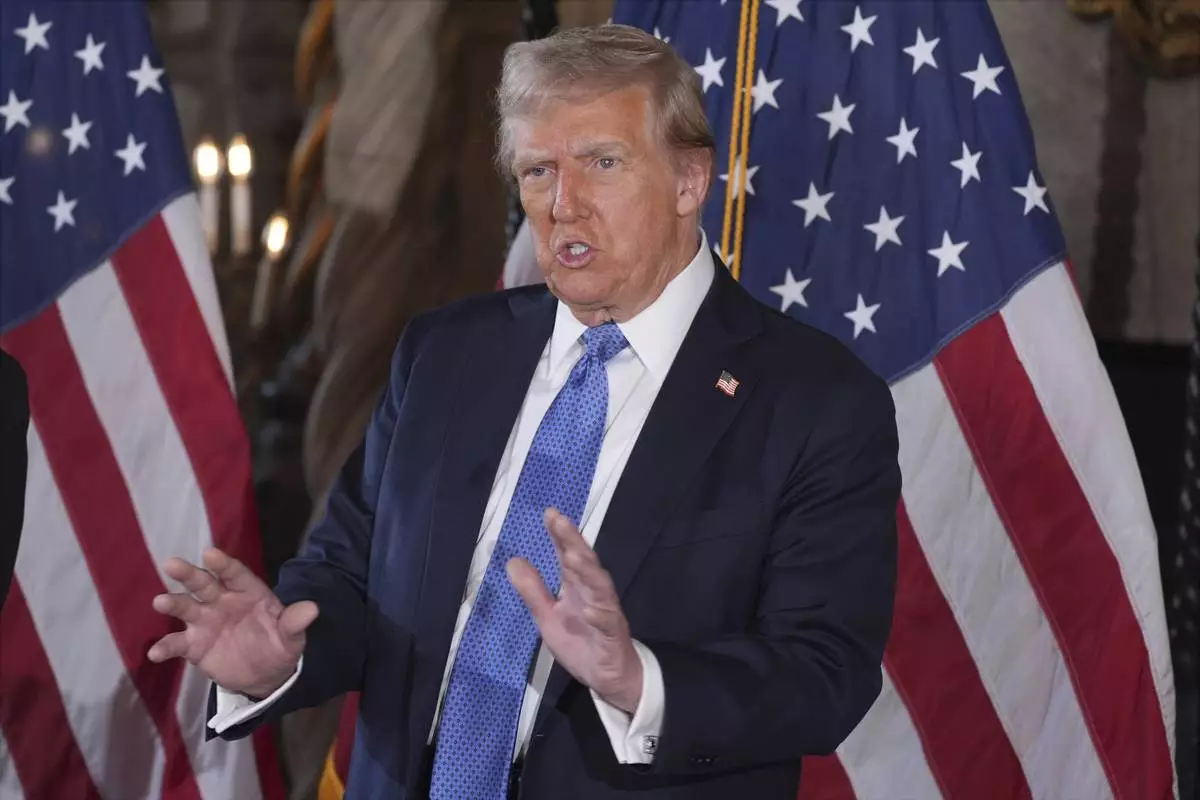
President-elect Donald Trump speaks during a news conference at Mar-a-Lago, Monday, Dec. 16, 2024, in Palm Beach, Fla. (AP Photo/Evan Vucci)


